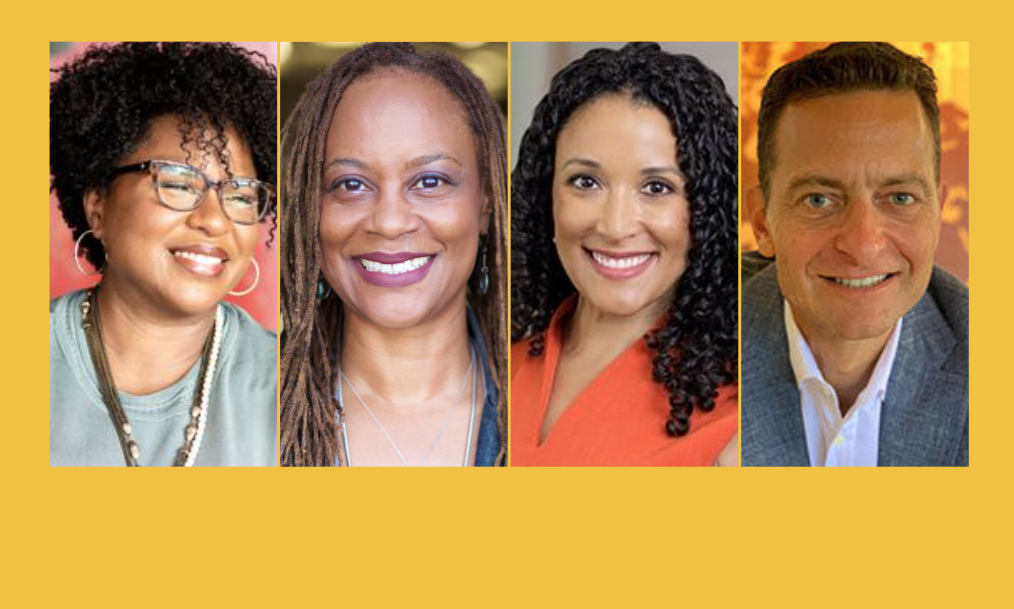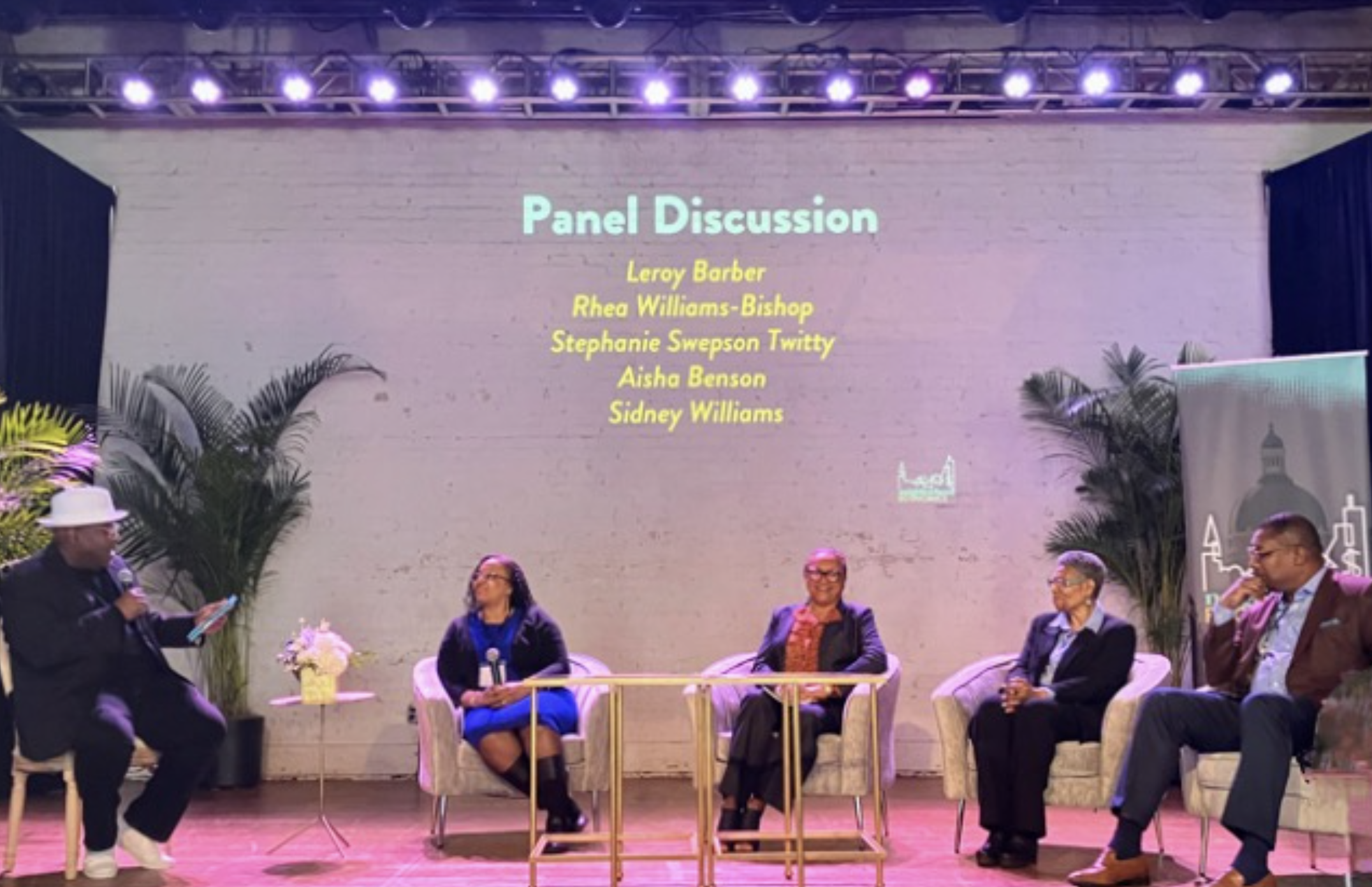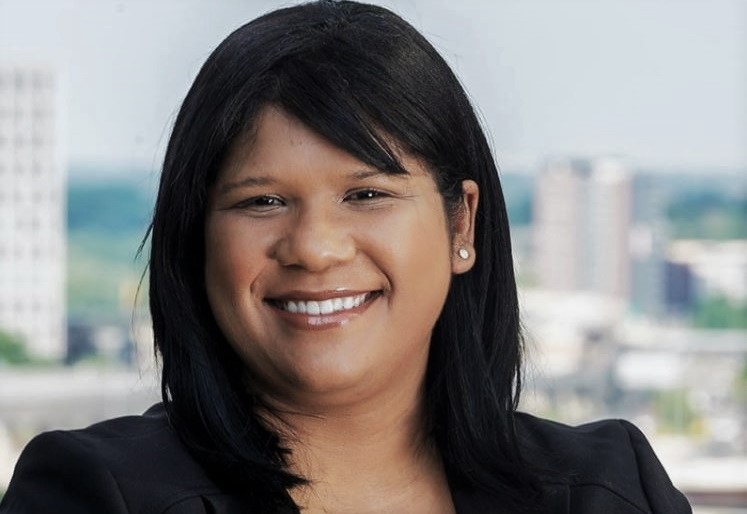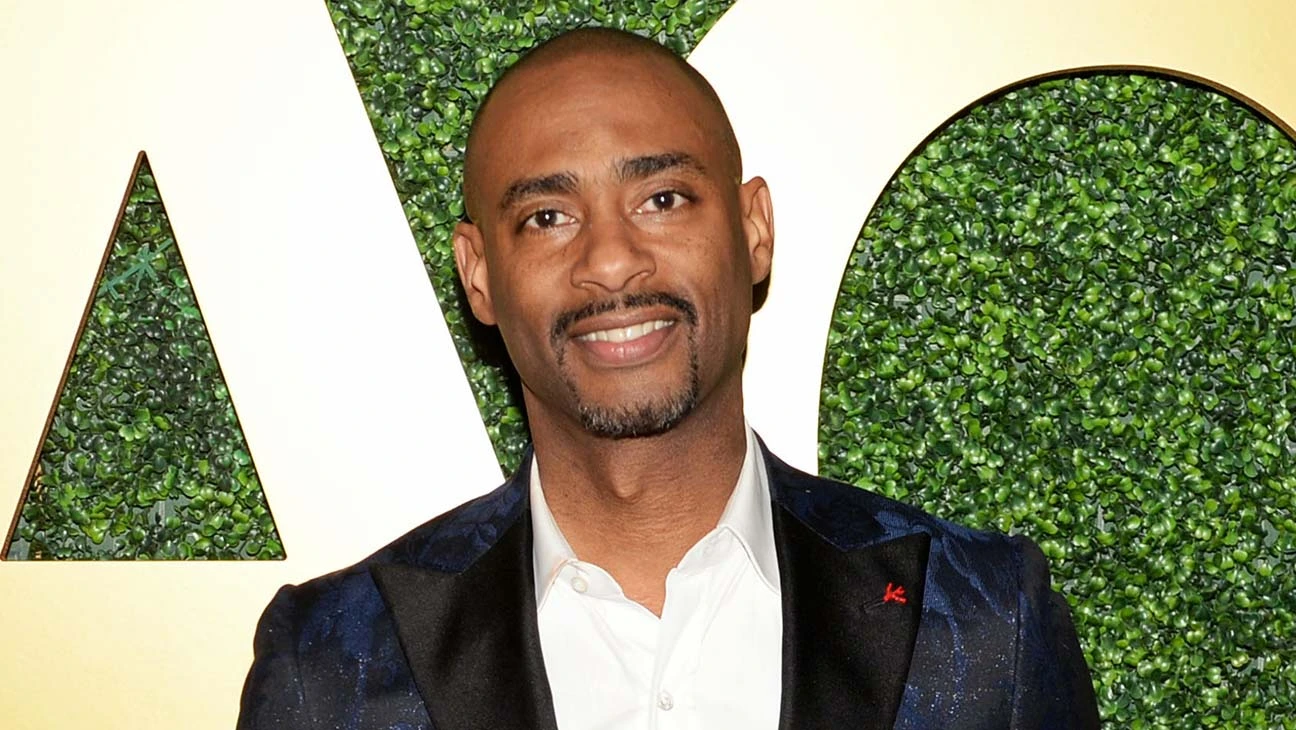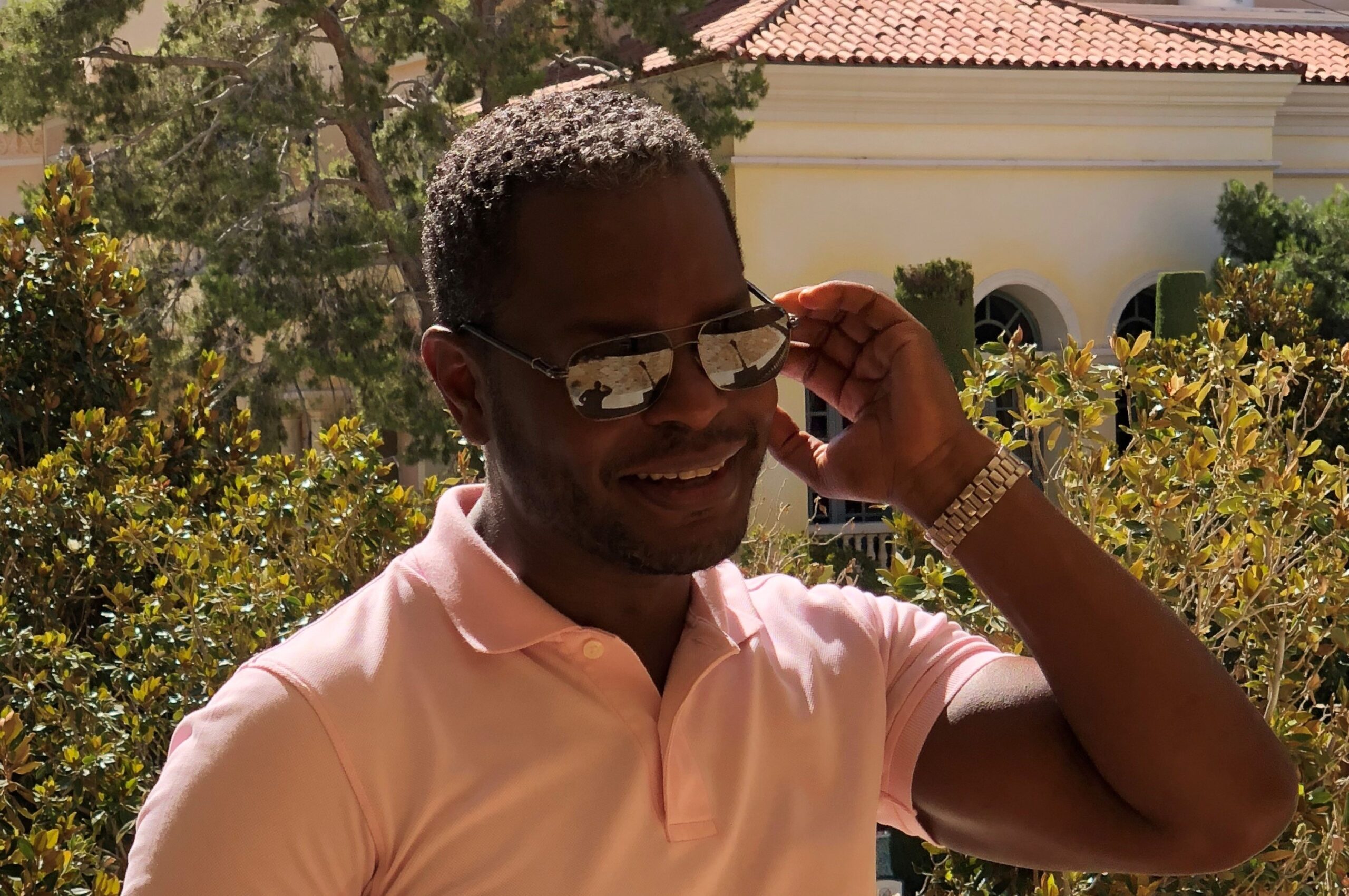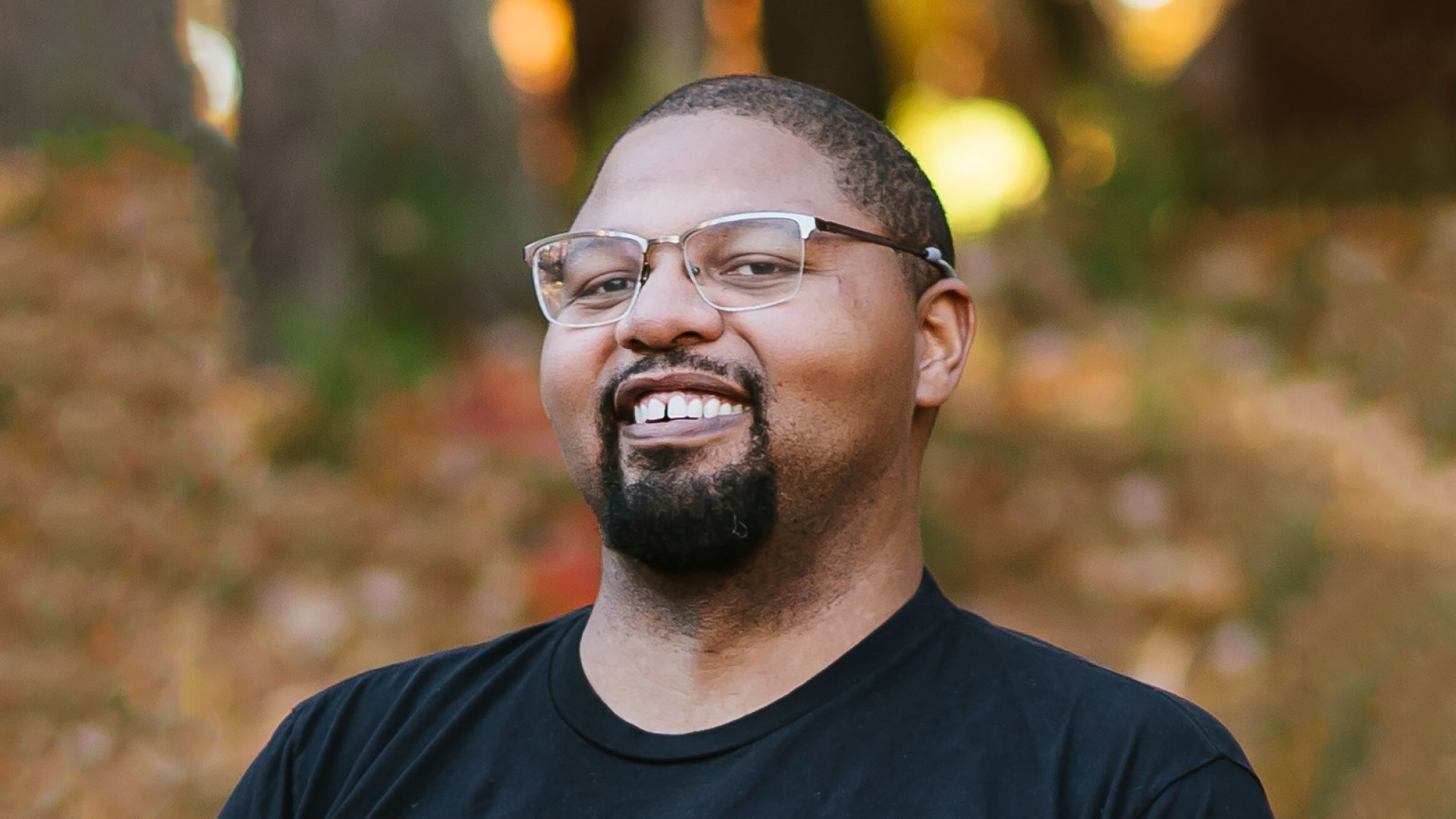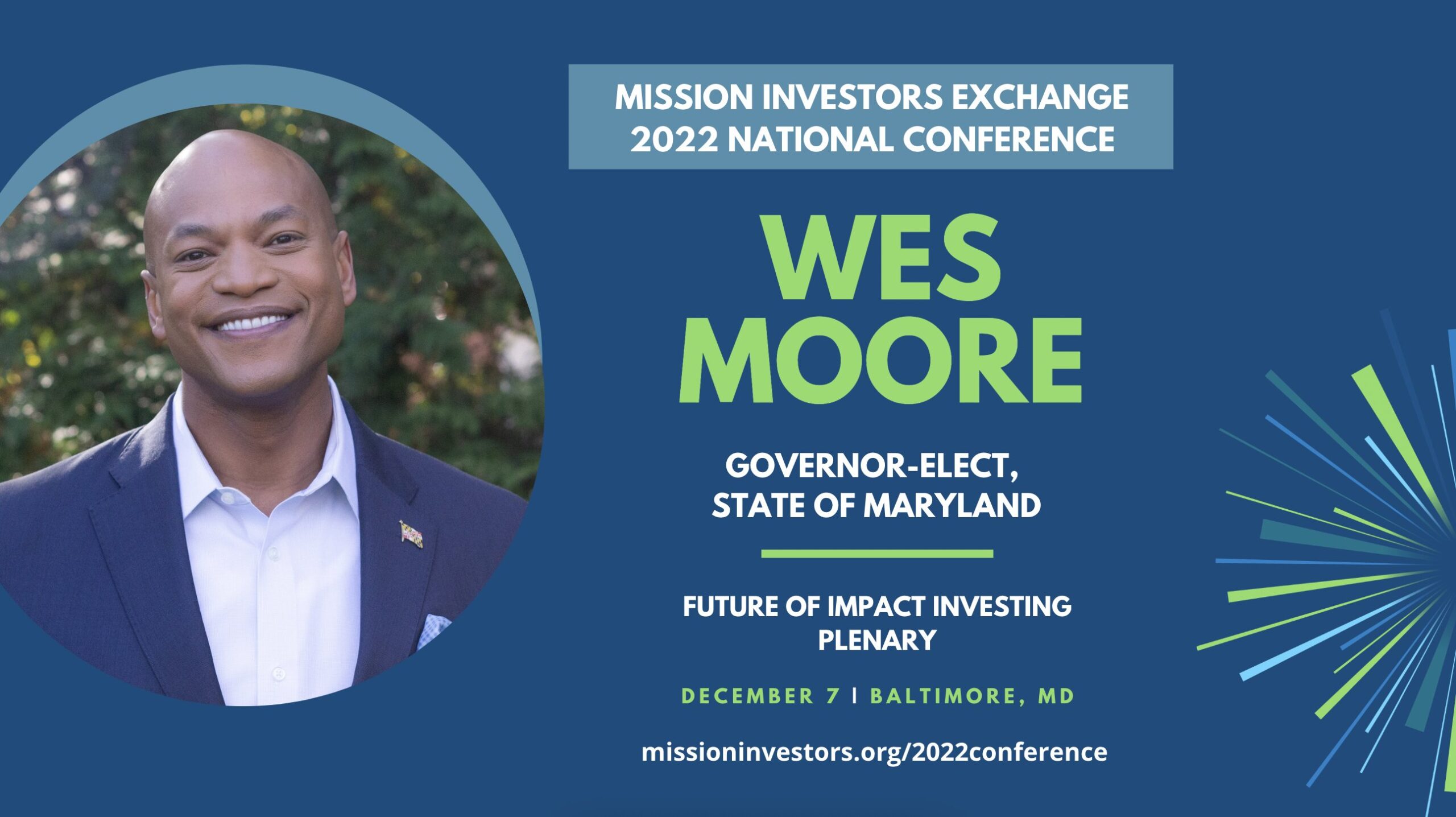ImpactAlpha, Feb. 10 – The broad problem of systemic bias in the asset management industry became very specific when fund manager Rachel Robasciotti pitched her services to an investment committee affiliated with Brent Kessel’s Abacus Wealth Partners.
Even from an impact investing firm, she faced standard due diligence questions, which tend to discount some experiences and overvalue others. In particular, business-as-usual has stacked the odds against first-time fund managers, with the effect of excluding many fund managers of color.
“I had a really heartfelt conversation with Brent,” said Robasciotti, who founded Adasina Social Capital in 2018 to help align the investment industry with movements for social justice. She says she told him, “‘Do you understand that asking these particular questions doesn’t realistically assess my acumen and whether I’m a good fit?’ And he listened.”
Robasciotti and Kessel, along with allies Tracy Gray and Erika Seth Davies, recount the origin story of the Due Diligence 2.0 Commitment to host Monique Aiken in the latest episode of ImpactAlpha’s podcast series, The Reconstruction.
The Due Diligence 2.0 Commitment has been embraced by Abacus and more than 20 other asset owners and allocators with tens of billions of dollars in assets under management between them, including the Nathan Cummings and Tara Health foundations and Sonen Capital, Wetherby Asset Management, Cornerstone Capital Group and Align Impact.
The commitment includes nine practices that can help push the allocation of capital towards population parity. Traditional fund manager due diligence frameworks have largely excluded all but white, male asset managers, who manage 98.7% of the investment industry’s $69 trillion in assets.
Among the commitments: Be willing to be first-in capital. Consider alternative ways to demonstrate a “track record,” such as capabilities in sourcing, evaluating and managing deals. And factor in risks and costs that have historically gone unrecognized, such as social unrest, lost tax revenues and sickness and lost productivity.
Such tweaks can help drive more capital to BIPOC managers, communities, entrepreneurs and stakeholders. The more inclusive due diligence practices are also consistent with the fiduciary responsibility, say the authors. By no longer excluding BIPOC managers, asset allocators have a larger selection pool to identify outperformers… and improve financial returns.
“I remember Rachel expressing this frustration, about being asked questions about track record and AUM (assets under management) levels that there was no way for emerging managers to meet,” says Kessel, who was raised in apartheid South Africa. “It’s chicken-and-egg. If you’re going to insist on this minimum, but you won’t give capital until they reach these minimums, then who is going to give them capital?”
Describing himself as “a white guy managing $3.6 billion,” Kessel says he decided, “I need to take the first step.”
Tracy Gray, founder and managing partner of The 22 Fund, said she had experienced similar dynamics in her work with foundations and other investors. Last year, with Toniic’s Emilie Cortes, Gray published, “How Foundations Fail Diverse Fund Managers and How to Fix It,” in Stanford Social Innovation Review.
“I was running into the same issues,” says Gray. “So I was starting to think, there’s something very systemic here.”
Davies, founder of the Racial Equity Asset Lab and a fellow at the Beeck Center at Georgetown University, saw an opportunity to leverage the revived interest in racial justice to address systemic bias in the investment industry.
“Even our concepts of risk and who is a risky investment have been largely defined, very narrowly, by a white male dominated industry,” says Davies, who also serves on the steering committee of The Reconstruction project. “When people who are not white and male come into this space, they’re considered an outsized operational risk or investment risk.”
Kessel says his childhood in South Africa left him with a “genuine yearning for equity.” But he allows that his ego comes into play. And he says, “My business does stand to benefit from people who share these values.”
Investor awareness of racial justice issues is shifting from moral aspiration to material risk, Kessel says, in much the way awareness of climate change shifted several years ago. Material ESG risks such as social unrest, higher incarceration rates and lost government revenues may not be able to be ascribed to particular corporations, but should command the attention of impact investors.
“If we can remove those risks and/or create that economic growth that otherwise didn’t exist, we get an outsized return on capital,” he says.
A pivotal moment in the process came when the chief investment officer of the asset management firm that Rabasciotti had pitched endorsed the new approach, even over the concerns of some on the investment committee that it represented “less due diligence” that should be disclosed to investors. On the podcast, he read the CIO’s response: “‘My understanding from reading everything is that the alternative due diligence process is not to be interpreted as a concessionary process. Rather, it’s a substantially equivalent but different process than the traditional one and perhaps even better.”
“It’s growth, it’s stretch, it’s painful,” Kessel says. “You do have to question your assumptions and it will be harder.”
Robasciotti says she has circled back to that investment committee and had a different conversation. “They’ve taken on more work,” she says. “What are the things you’re trying to get at? What are the reasonable ways I have to demonstrate this? How can we get the manager diversity we want, and the impact outcomes, as we’re in the process of dismantling the systems we’re in?” she says she has asked them.
Aiken asks the roundtable how to carry the work forward. “There are many different pledges, and PR activism going on, in the wake of so many crises,” Gray offers. “But they aren’t necessarily lifting up the voices of those most impacted.”
“Brent, we are the most impacted and you listened to us,” she says. “As an allocator, you were willing to set aside your supposedly tried-and-true way in order to get a different outcome.”
This podcast is part of ImpactAlpha’s new podcast series, The Reconstruction. Host: Monique Aiken. Editor: David Bank. Producer: Isaac Silk. Special thanks to Lyneka Little and Cesar Chavez.
Find episodes of The Reconstruction podcast, and all of ImpactAlpha’s coverage of racial justice and inclusive prosperity, on The Reconstruction landing page.

